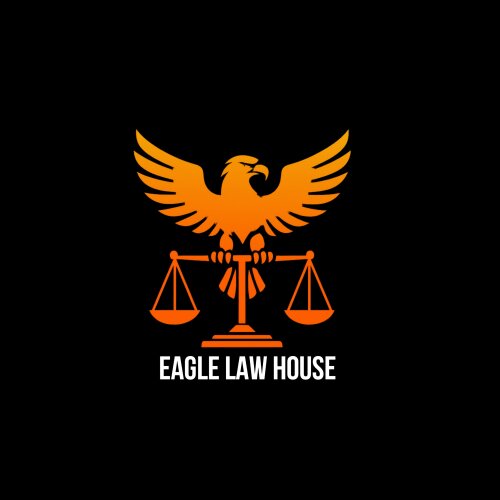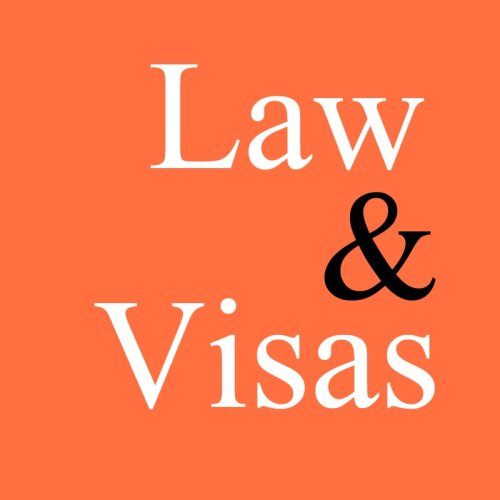Best Asylum Lawyers in Nigeria
Share your needs with us, get contacted by law firms.
Free. Takes 2 min.
Or refine your search by selecting a city:
List of the best lawyers in Nigeria
About Asylum Law in Nigeria
Asylum law in Nigeria provides protection to foreign nationals who are at risk of persecution in their home countries due to race, religion, nationality, political opinion, or membership in a particular social group. Nigeria is a signatory to the 1951 Convention relating to the Status of Refugees and its 1967 Protocol, committing to international principles of refugee protection. The Nigerian government, through its agencies, processes asylum applications with the support of international organizations like the United Nations High Commissioner for Refugees (UNHCR).
Why You May Need a Lawyer
Navigating the asylum process in Nigeria can be complex, and legal expertise is often needed in the following situations:
- Understanding your eligibility for asylum under Nigerian law and international agreements.
- Filing asylum applications, where adherence to legal procedures is crucial.
- Appealing a rejected asylum claim, requiring in-depth knowledge of legal grounds and possible remedies.
- Ensuring compliance with Nigerian laws during your stay to avoid legal complications.
- Handling any issues involving family reunification or other human rights aspects.
Local Laws Overview
Key aspects of local laws regarding asylum in Nigeria include:
- The National Commission for Refugees, Migrants, and Internally Displaced Persons Act, which lays out the framework for refugee management in Nigeria.
- The Immigration Act, impacting entry, stay, and residence permissions.
- The Security Agencies Act, which may involve screening processes for security purposes.
- Nigeria's overall commitment to international human rights treaties which influence local asylum procedures.
Frequently Asked Questions
What is the first step in applying for asylum in Nigeria?
You should approach the National Commission for Refugees, Migrants, and Internally Displaced Persons (NCFRMI) to submit an application.
How long does the asylum application process take?
The duration varies, but it generally takes several months, depending on the complexity of the individual case.
Can I work while my asylum application is being processed?
Asylum seekers may face restrictions on employment, and it is advisable to consult with the NCFRMI or a legal expert for guidance on obtaining work permits.
What happens if my asylum application is rejected?
You have the right to appeal the decision. It is crucial to seek legal advice to understand the grounds for appeal and the timeline for submitting it.
Can family members join me in Nigeria if I am granted asylum?
Family reunification is recognized, but you will need to follow specific legal channels to facilitate their entry and stay in Nigeria.
Is there any financial assistance available for asylum seekers?
Asylum seekers may access certain forms of assistance through UNHCR and collaboration with local NGOs.
Are there legal provisions for unaccompanied minors seeking asylum?
Yes, special protections and procedures are in place for children, prioritizing their welfare and best interests.
What rights do asylum seekers have in Nigeria?
Asylum seekers have rights to medical care, legal assistance, and primary education, though access may vary based on available resources.
Do asylum seekers face detention in Nigeria?
Detention is possible under specific circumstances, such as security concerns; however, legality and necessity of detention should be evaluated case by case.
How can I prove I need asylum?
Providing personal statements, corroborating testimonies, and evidence like documents and media reports is essential to establishing credible fear of persecution.
Additional Resources
For more support on asylum in Nigeria, consider consulting:
- The National Commission for Refugees, Migrants, and Internally Displaced Persons (NCFRMI)
- The United Nations High Commissioner for Refugees (UNHCR) offices in Nigeria
- International and local NGOs such as the Nigerian Red Cross and others focusing on human rights and refugee support
Next Steps
If you require legal assistance with asylum in Nigeria, consider the following steps:
- Reach out to a qualified immigration lawyer specializing in asylum cases.
- Contact refugee support agencies for workshops or clinics that provide preliminary counseling and document review.
- Prepare all relevant documentation and personal records to support your asylum application.
- Stay informed about your rights and available resources by connecting with community organizations and legal aid groups.
Lawzana helps you find the best lawyers and law firms in Nigeria through a curated and pre-screened list of qualified legal professionals. Our platform offers rankings and detailed profiles of attorneys and law firms, allowing you to compare based on practice areas, including Asylum, experience, and client feedback.
Each profile includes a description of the firm's areas of practice, client reviews, team members and partners, year of establishment, spoken languages, office locations, contact information, social media presence, and any published articles or resources. Most firms on our platform speak English and are experienced in both local and international legal matters.
Get a quote from top-rated law firms in Nigeria — quickly, securely, and without unnecessary hassle.
Disclaimer:
The information provided on this page is for general informational purposes only and does not constitute legal advice. While we strive to ensure the accuracy and relevance of the content, legal information may change over time, and interpretations of the law can vary. You should always consult with a qualified legal professional for advice specific to your situation.
We disclaim all liability for actions taken or not taken based on the content of this page. If you believe any information is incorrect or outdated, please contact us, and we will review and update it where appropriate.
Browse asylum law firms by city in Nigeria
Refine your search by selecting a city.
















